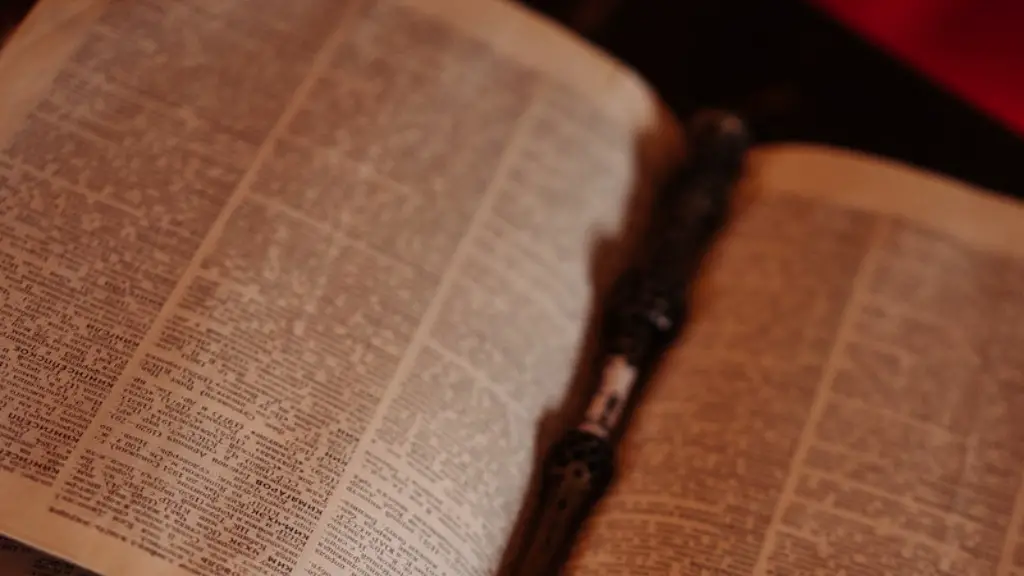The world of literature often falls under two main categories: poetry and prose. Although many elements of literature are different between these two sections, there are some distinct similarities that make them two sides of the same coin.
Both poetry and prose are forms of written language, however there are still several similarities that help to create a link between them. One of the main similarities is the use of figurative language and symbols. Both poetry and prose employ metaphors, allusions, and symbols in order to evoke emotion and convey meaning. These literary devices are used in both genres to draw the reader in by using emotional triggers and clever word-play.
A second similarity between these two genres is the need to evoke emotion. When it comes to literature, one of the most important elements is to create an emotional response in the reader. No matter the form, literature must have an emotional impact in order to be successful. Whether it’s through a narrative full of raw emotion or a powerful metaphor, both prose and poetry rely on the author’s ability to craft a story that resonates with the reader on an emotional level.
Another key similarity between poetry and prose is the use of rhythm and sound. While not all poetry contains rhyme and meter, traditional poetry often does use these aspects of literature in order to evoke emotion and create a sense of unity between a poem’s lines. Similarly, prose also often uses elements of rhythm and sound in order to convey meaning. Through the usage of a variety of sentence lengths and structure, authors of novels and short stories can also create a sense of unity and flow in their writing.
Finally, both poetry and prose rely on the writer’s ability to craft a narrative and weave together a story. Storytelling is a crucial element of both genres, and each requires the writer to craft a tale that captivates the reader. Whether it’s diving into a beautifully constructed poem or following a thrilling novel, both prose and poetry rely on high-level storytelling in order to be successful.
Thematic Similarities
When it comes to literature, one of the most important similarities between prose and poetry is the notion of themes. Both genres rely on conveying a certain message or idea through the story, often set against a larger context. Whether it’s in a poem or a book, authors use themes to drive their stories forward, often drawing on similar universal themes such as love, loss, or the passing of time.
Furthermore, writers of poetry and prose often use themes to explore larger ideas and concepts. In a poem, this might mean examining the notion of mortality or questioning the value of life. In prose, this might manifest as a tale of a person questioning the meaning of existence or a story of redemption and acceptance. Whatever the chosen theme, its importance in literature cannot be understated.
The subtle nuances of themes make literary works unique and special. Through the juxtaposition of seemingly everyday concepts with beautifully crafted words, authors in both genres are able to create stories that stand out and make a lasting impression. Whether it’s in a poem or a novel, themes make literary works memorable and timeless.
Boring vs Engaging
Another interesting similarity between prose and poetry is the notion of engaging versus boring writing. Due to the fact that both genres rely on storytelling, it is important for the writing to be engaging and hold the reader’s interest. Good writing in both genres involves an understanding of how to craft an interesting narrative, while bad writing fails to draw the reader in and risks losing them. Engaging writing is ultimately the key to successful literature, no matter the form.
In both poetry and prose, the key to engaging writing is to create interest and tension in the reader. This can be achieved through the use of intriguing characters and unexpected plot twists. Similarly, a good story always involves the protagonist developing and growing in order to solve the problem they are facing. Through these methods, the writer can craft a story that is both engaging and captivating, a thread which links both genres of literature together.
Furthermore, a key part of engaging writing involves challenging the reader’s preconceived notions about the world. This can be done through the use of complex themes and metaphors, often allowing the reader to view the story from a different perspective. When it comes to literature, one of the best ways to captivate an audience is by challenging their worldview and giving them something to contemplate.
Style vs Content
A final similarity between poetry and prose is the importance of both style and content. It is important for authors to understand the distinction between style and content when writing, as both are equally important yet serve different purposes. While prose relies more heavily on the content, poetry relies more heavily on the actual style of the writing.
The content of the story is essential in any literary form, as it is the plot and characters of the story which drive the narrative forward. On the other hand, the style of the writing is just as important, as it gives the story its unique flair. A well-crafted poem will often employ alliterations and word-play, creating an interesting rhythm and structure to the poem. Similarly, a good story relies on the author’s knowledge of how to strategically structure their plot points and use descriptive writing to bring the story to life.
In conclusion, poetry and prose are more similar than many realize. Both employ figurative language, evoke emotion, and rely on storytelling. Furthermore, themes, engaging writing, and a balance between style and content are also aspects that make these two genres uniquely similar. Although there are many differences between prose and poetry, the similarities make them two sides of the same coin.
Audience Engagement
One of the most important similarities between poetry and prose is the need to engage the reader. In any form of literature, the audience must be hooked and captivated in order for the story to be successful. Both poetry and prose rely on their authors to craft a story that their readers can connect to, whether it’s through a captivating narrative or a powerful metaphor.
Furthermore, audience engagement goes beyond just the story itself. It includes understanding the reader’s background, context, and mindset when crafting the story. When authors understand their readers, they are able to craft stories that are not just engaging, but that are meaningful and impactful. These stories are able to transcend simply entertainment and become powerful tools for communication and expression.
Another key aspect of audience engagement is the need to evoke emotion. Whether it’s awe, sorrow, or joy, literature must have an emotional impact in order to be successful. Great writers in both genres understand the need to create an emotional connection and are often masters at creating stories that resonant with readers on a personal level.
Finally, understanding the audience also involves understanding what it is that makes a story successful. The best writers in both genres are able to carefully craft stories that are not only engaging, but that stand out from the rest. Whether it’s through a unique setting or characters, great writers have an understanding of what it is that will help their stories to be successful.
Emotional Connection
At the heart of both poetry and prose is the need to create an emotional connection with readers. Authors need to draw on their readers’ emotions in order to create an impactful story. This emotional connection is what makes good writing memorable, and is an important factor for both poetry and prose.
One way that authors create an emotional connection is through the use of descriptive language and vivid imagery. By crafting a story that is full of rich detail and vivid descriptions, authors are able to draw their readers in and make them feel like they are part of the story. When done correctly, authors are able to create a sense of intimacy and connection with their readers through their writing.
Furthermore, emotional connection in literature also requires the author to use complex themes and metaphors. Through the use of these elements, authors are able to create a sense of depth and substance to the story. They can explore larger concepts and ideas, helping to shape the story and make it an exploration of the human experience.
Finally, authors must also be able to evoke emotion in their readers. Whether it be joy, sorrow, love, or anger, literature relies on emotional triggers in order to create a meaningful impact. Authors must be careful to craft a story that does not hit the reader over the head with emotion, but rather one that allows the reader to process and experience the emotional journey with them.





